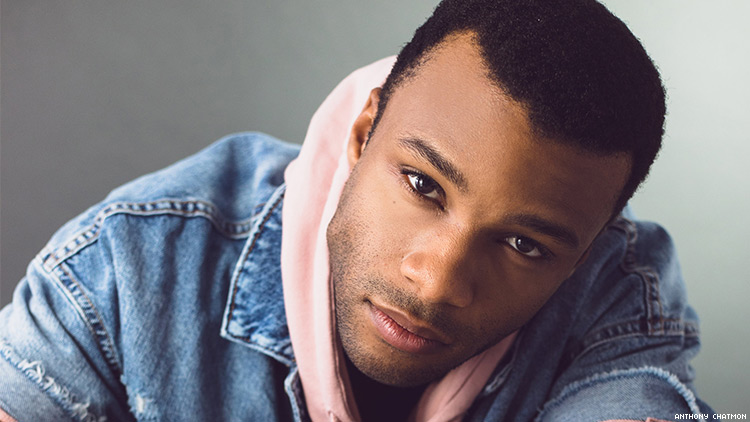Mary Jane Kennedy could fit most stereotypes of white, Southern privilege.
“I just had this blessed life,” she says in “Prideland,” a documentary by Dyllon Burnside (shown here) that will air at 9 p.m. Friday (June 12) on most PBS stations.
She’s been religious, Republican and conservative. She taught church school for decades and lives in a huge house in Brandon, which calls itself “the second safest city in Mississippi.”
And she has become, in her 60s, a gay-rights spokeswoman. That story provides some extraordinary “Prideland” moments.
In the documentary, Burnside (“Pose”) travels through his native South, viewing changed attitudes toward gays. Some early segments are fairly forgettable; then he meets Kennedy.
“Girls raised in the South talk a lot,” she tells him. And she has a lot to tell.
Her entire life, she says, has been in Mississippi. “You can’t get any closer to conservative family values.”
Then she learned that her two sons are gay. “There was nothing that prepared me for this …. I walked out onto the balcony of the hotel and I said, ‘To jump or not to jump.’”
Her sons talked her down (literally and figuratively) by quoting biblical verses about love and acceptance. Her husband reacted calmly – “they’re my boys and I love ‘em,” he said – but their pastor didn’t. He told her to keep it a secret, so she could continue teaching in church school.
She did for 14 years, she says, before she couldn’t hold back any more. Six years ago, at 61, Kennedy was featured in commercials for a human-rights campaign.
Some people said “just ugly, ugly things,” Kennedy said. Overall, “it was the best and worst thing that’s happened to me …. I finally learned what it must be like to grow up gay in this beautiful South.”
That’s a feeling Burnside is familiar with. He grew up on a ranch near Pensacola, Fla., he says in “Prideland,” with a life of music and religion. At 21, he became a music leader at a mega-church, a job he loved. Then he told the pastor he’s attracted to men … and was promptly fired. “I was crushed.”
His response was to move to New York, where he starred briefly on Broadway in 2014, then landed a key role (Ricky, homeless and gay and a gifted dancer) in “Pose.” This documentary takes him to Florida, Alabama and Mississippi; he meets:
– The Rev. Rob Lowery, who spent the first nine years of his ministry keeping a secret. “Being out just wasn’t an option,” he says. But when he did come out, a decade ago, the reaction was “wonderfully welcoming.”
– Steven Reed, whose father was one of Martin Luther King’s top aides. As the first black mayor of Montgomery, Ala., Reed is expanding civil rights to include gays and more.
– Jessica Gonzalez, one of five lesbians currently in the Texas legislature.
– And others, including a trans-gender activist, an adoptive lesbian couple and a lesbian rodeo champion who says neighbors and rodeo people have accepted her. “The world’s evolved,” she says. “It’s so much better.”
– “Prideland,” 9 p.m. Friday (Jne 12), PBS (check local listings)
– It’s a new LGBT Pride Month special. PBS has also scheduled two reruns – “Stonewall Uprising” from 9-10:30 p.m. Tuesday (June 9) and “The Lavender Scare,” 10 p.m. Friday. It also has many reruns that individual stations can run.
